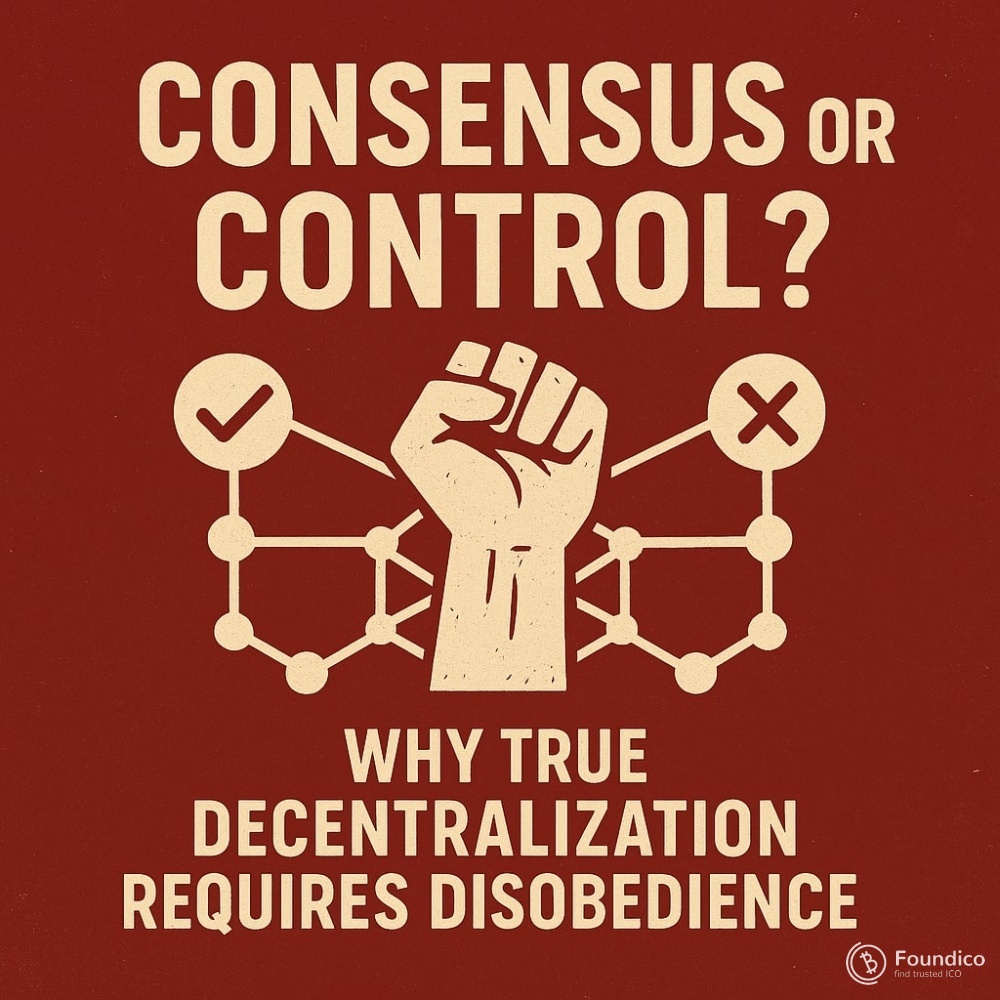Consensus or Control? Why True Decentralization Requires Disobedience

By Dr. Pooyan Ghamari, Swiss Economist and Visionary
The promise of decentralization has always been tied to the ideals of freedom, autonomy, and the dismantling of centralized power structures. Whether in finance, governance, or technology, decentralization is often presented as the antidote to concentration, corruption, and control. Yet as we celebrate its possibilities, we must also confront a difficult truth: without disobedience, decentralization can be quietly reshaped into a disguised form of centralization.
The Myth of Neutral Consensus
Consensus mechanisms, the beating heart of decentralized systems, are typically hailed as fair and democratic. They give the illusion that decisions are made collectively, without coercion. But consensus, when stripped of its philosophical depth, risks becoming a tool of subtle control. The danger lies in mistaking uniform agreement for freedom.
In practice, “consensus” can devolve into conformity, where the loudest voices, wealthiest participants, or most powerful networks dictate outcomes. This shifts the paradigm from decentralization to oligarchy, where influence is concentrated in fewer hands under the guise of community-driven decision-making.
Disobedience as Decentralization’s Safeguard
Disobedience may sound like a threat to stability, but in truth it is decentralization’s greatest safeguard. Systems that cannot tolerate dissent are inherently fragile; they rely on obedience to survive. True decentralization, however, must welcome difference, resistance, and even conflict.
Disobedience prevents stagnation. It forces communities to confront uncomfortable questions, challenge entrenched interests, and reimagine the rules when they no longer serve the collective. Just as innovation often arises from breaking conventions, decentralization matures when individuals and groups resist imposed norms.
Power Dynamics Beneath the Surface
The evolution of blockchain governance is a telling example. Proof-of-work and proof-of-stake models each sought to democratize validation, but both have revealed new hierarchies: mining cartels, validator oligopolies, and capital-weighted voting systems. These realities highlight how consensus alone does not guarantee decentralization.
When disobedient actors—whether through forks, alternative protocols, or independent innovations—challenge the status quo, they act as correctives. Their very refusal to obey centralized tendencies sustains the possibility of genuine distribution of power.
Beyond Technology: A Cultural Imperative
Decentralization is not merely a technical architecture; it is a cultural and ethical imperative. It asks us to resist passive obedience to systems, whether technological, political, or financial. Disobedience in this context does not mean chaos or destruction—it means the courage to say “no” when consensus becomes coercion.
To decentralize truly is to embrace plurality: a multitude of voices, perspectives, and directions. And plurality can only survive in an ecosystem that tolerates, even celebrates, disobedience.
The Paradox of Freedom
The paradox of decentralization is that it cannot thrive without the very thing that threatens uniformity: disobedience. Consensus provides structure, but disobedience ensures freedom. One without the other is incomplete.
If we are to build systems that truly liberate rather than control, we must accept that decentralization is not a static state but an ongoing act of defiance against centralizing forces. It is in disobedience that decentralization remains alive, dynamic, and authentic.
